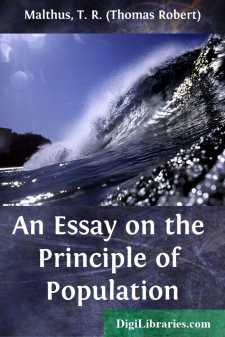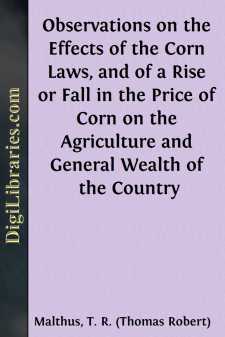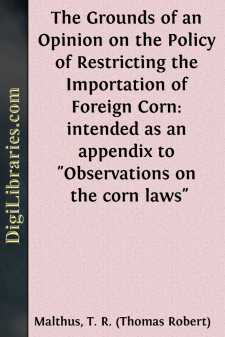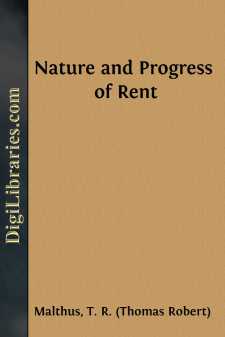Categories
- Antiques & Collectibles 13
- Architecture 36
- Art 48
- Bibles 22
- Biography & Autobiography 813
- Body, Mind & Spirit 142
- Business & Economics 28
- Children's Books 15
- Children's Fiction 12
- Computers 4
- Cooking 94
- Crafts & Hobbies 4
- Drama 346
- Education 46
- Family & Relationships 57
- Fiction 11828
- Games 19
- Gardening 17
- Health & Fitness 34
- History 1377
- House & Home 1
- Humor 147
- Juvenile Fiction 1873
- Juvenile Nonfiction 202
- Language Arts & Disciplines 88
- Law 16
- Literary Collections 686
- Literary Criticism 179
- Mathematics 13
- Medical 41
- Music 40
- Nature 179
- Non-Classifiable 1768
- Performing Arts 7
- Periodicals 1453
- Philosophy 64
- Photography 2
- Poetry 896
- Political Science 203
- Psychology 42
- Reference 154
- Religion 513
- Science 126
- Self-Help 84
- Social Science 81
- Sports & Recreation 34
- Study Aids 3
- Technology & Engineering 59
- Transportation 23
- Travel 463
- True Crime 29
T. R. (Thomas Robert) Malthus
Thomas Robert Malthus was an English economist and demographer, best known for his work on population growth. His most famous work, "An Essay on the Principle of Population" (1798), posits that population growth tends to outpace food production, leading to inevitable shortages and societal strain. Malthus argued that while populations increase geometrically, resources such as food grow arithmetically, which could result in famine, disease, and other checks on population. His ideas influenced economic thought, social policy, and debates on population control.
Author's Books:
Sort by:
CHAPTER 1 Question stated—Little prospect of a determination of it, from the enmity of the opposing parties—The principal argument against the perfectibility of man and of society has never been fairly answered—Nature of the difficulty arising from population—Outline of the principal argument of the Essay The great and unlooked for discoveries that have taken place of late years in natural...
more...
A revision of the corn laws, it is understood, is immediately to come under the consideration of the legislature. That the decision on such a subject, should be founded on a correct and enlightened view of the whole question, will be allowed to be of the utmost importance, both with regard to the stability of the measures to be adopted, and the effects to be expected from them. For an attempt to...
more...
The professed object of the Observations on the Corn Laws, which I published in the spring of 1814, was to state with the strictest impartiality the advantages and disadvantages which, in the actual circumstances of our present situation, were likely to attend the measures under consideration, respecting the trade in corn. A fair review of both sides of the question, without any attempt to conceal the...
more...
The rent of land is a portion of the national revenue, which has always been considered as of very high importance. According to Adam Smith, it is one of the three original sources of wealth, on which the three great divisions of society are supported. By the Economists it is so pre-eminently distinguished, that it is considered as exclusively entitled to the name of riches, and the sole fund which is...
more...





